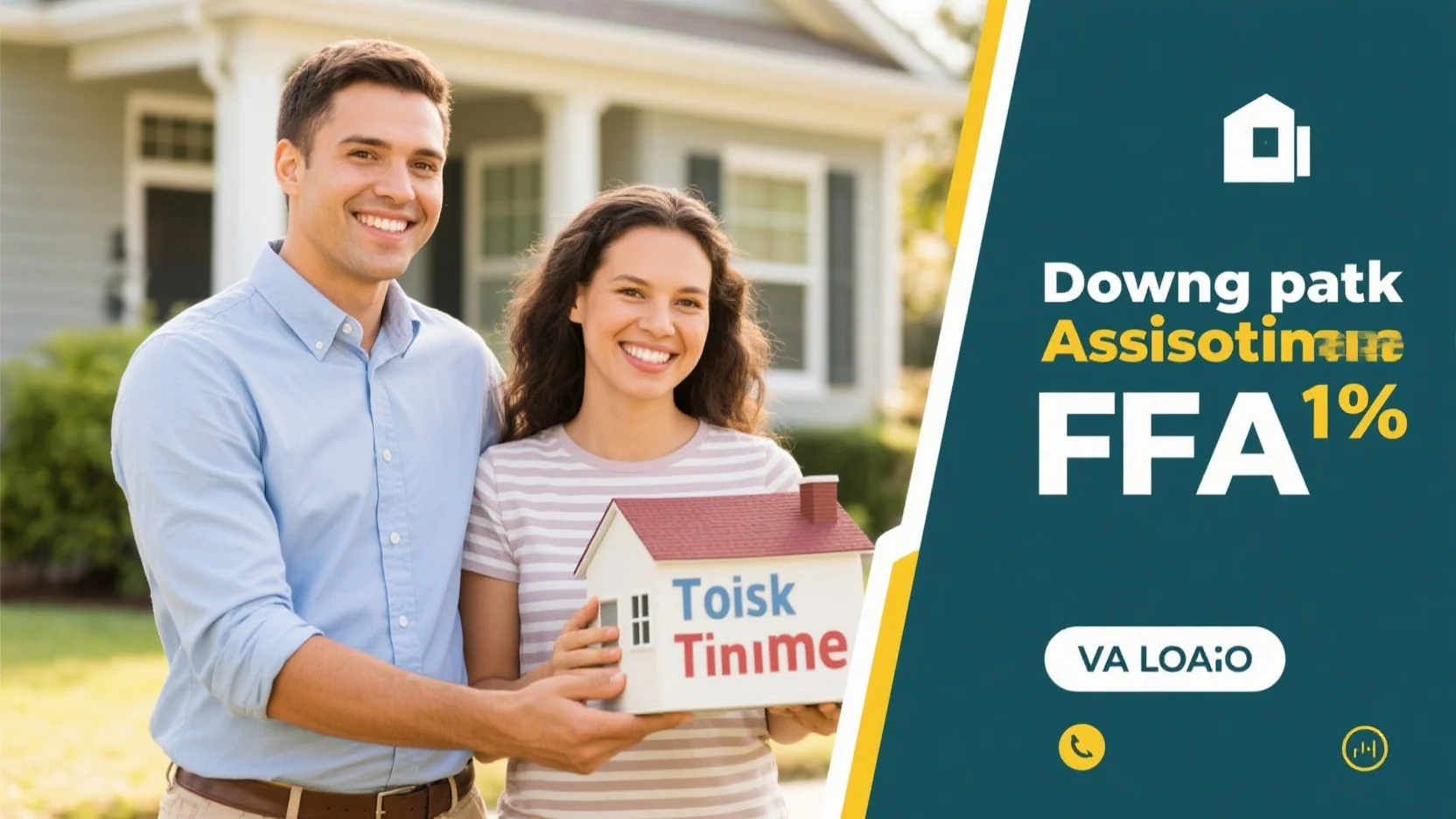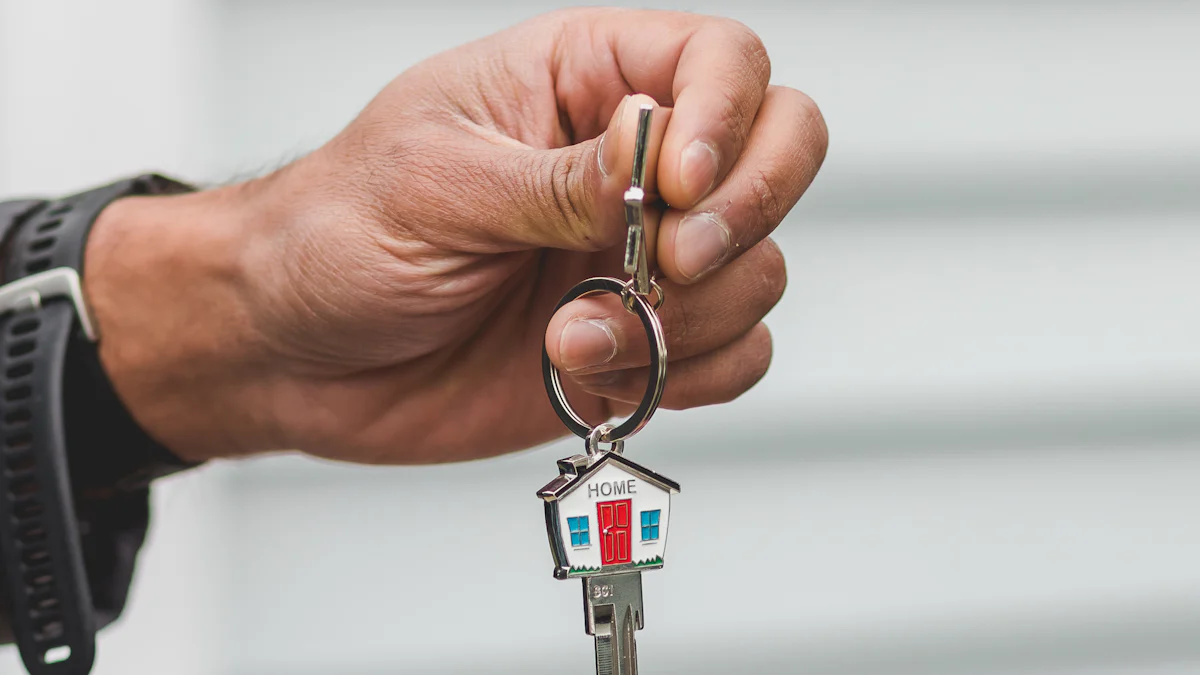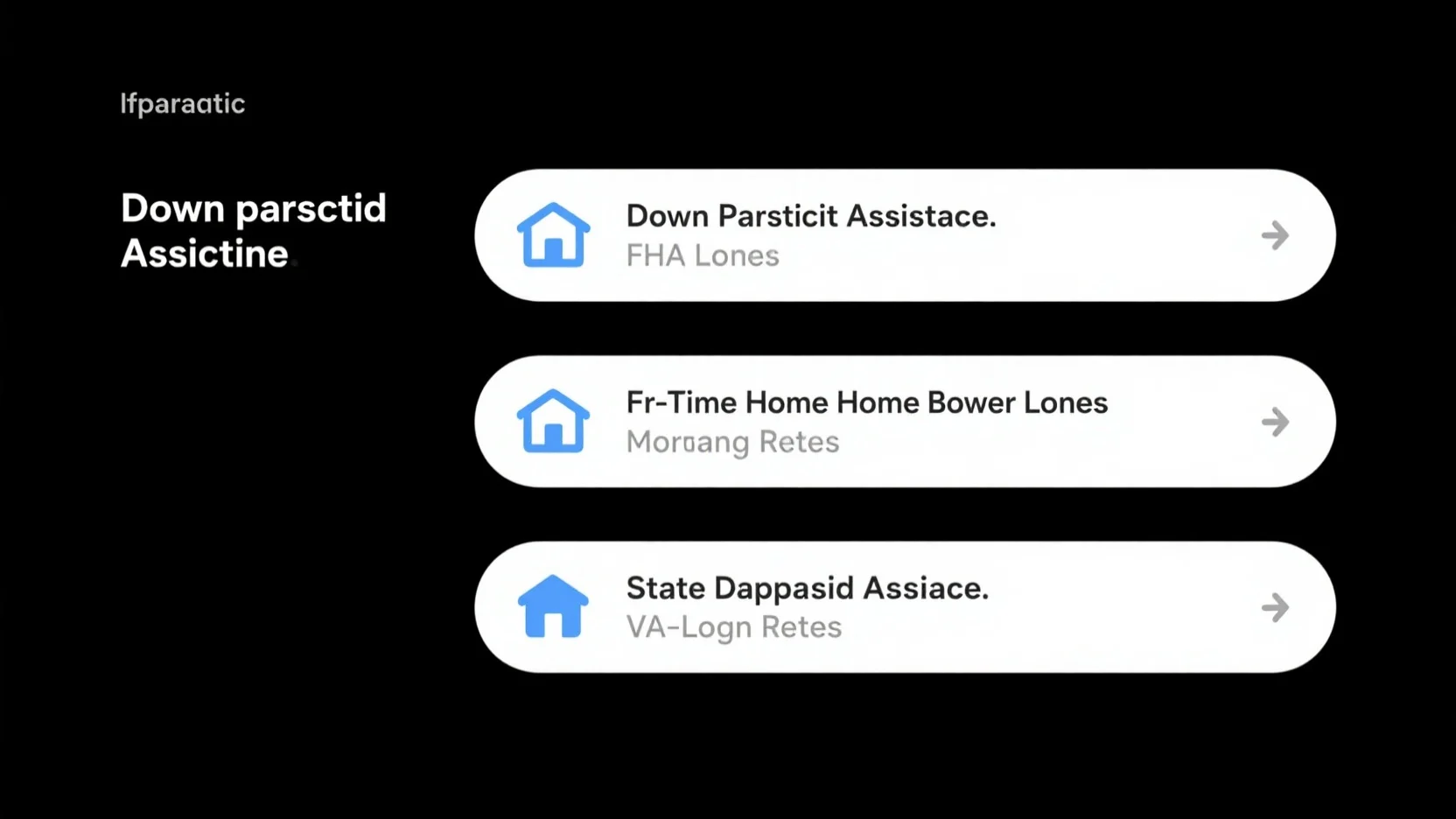
How First-Time Buyers Can Benefit from Down Payment Assistance

Image Source: pexels
Buying your first home can feel stressful and hard. Upfront costs might seem too high to afford. Down payment help programs make this easier with financial support. These programs, like grants or loans, assist with costs. First-time home buyer programs in [State] help more people achieve homeownership.
Key Takeaways
- Down payment help programs make homes cheaper for first-time buyers. They lower the money needed upfront with grants or loans.
- Grants give free money that you don’t have to pay back. This is great for people who don’t have much saved.
- To get down payment help, look up local programs. Check if you qualify and collect needed papers to apply easily.
What Is Down Payment Assistance?
Definition and Purpose
Down payment assistance (DPA) programs help pay for home costs. They lower the upfront money needed to buy a house. These programs make owning a home easier and less expensive. DPA programs include grants, loans you don’t repay, delayed loans, and tax savings.
Grants give free money you don’t have to pay back. Forgivable loans are like second mortgages but are canceled if you follow rules, like staying in the home for years. Deferred loans let you pay later when you sell or refinance. Some programs give tax credits to save money during tax time.
Each program works differently. Grants don’t add debt to your home, but some loans might need repayment. Many programs mix grants and loans to fit your needs.
Why It’s Important for First-Time Buyers
First-time buyers may struggle to save for a down payment. DPA programs help by giving money for these costs. About 74% of these programs focus on down payments. Others help with closing costs or lower mortgage rates.
In [State], first-time buyer programs often include DPA options. These programs make it easier to own a home instead of renting. They lower upfront costs, making homeownership possible for families and individuals.
Who Can Get Help with Down Payment Assistance?
Rules for First-Time Buyers
Programs for down payment help are made for first-time buyers. To qualify, you must follow certain rules. Most programs say you’re a first-time buyer if you haven’t owned a home in three years. Your income must be low or moderate because these programs help people who need money the most.
You also need to live in the home you buy. Vacation homes or rental properties don’t count. Many programs have limits on how much the home can cost. This ensures the help goes to affordable homes. You might also need to use a specific loan and work with approved lenders.
Some programs ask you to take a homebuyer class. These classes teach about money, loans, and owning a home. They help you get ready for the costs of owning a house.
Common Rules for Most Programs
Each program has its own rules, but many are similar. You often need a certain credit score, which depends on the program. Some programs only work with certain loans, like FHA or VA loans. The home’s location might matter too, as some programs focus on certain areas.
Income limits are common. These limits are based on the area’s average income to help those who need it most. There are also limits on the home’s price to keep it affordable.
First-time buyer programs in [State] usually include these rules. If you meet them, you can get help to make buying a home easier.
Types of Down Payment Assistance

Image Source: pexels
Grants
Grants are a common way to get help with down payments. They give you money that you don’t need to pay back. This makes them great for lowering upfront costs. Grants usually come from the government or nonprofit groups. They are like a gift and don’t add debt to your home. But some grants have rules, like staying in the house for a certain time.
If you qualify, grants can make buying a home easier. Many first-time buyer programs in [State] offer grants to reduce financial stress.
Forgivable Loans
Forgivable loans are like second mortgages but can be canceled. To qualify, you must follow rules, like living in the house for years. These loans may put a lien on your home until forgiven.
| Feature | Grants | Forgivable Loans |
|---|---|---|
| Repayment | No repayment needed | Forgiven if you meet conditions. |
| Conditions for Forgiveness | May require staying in the home | Forgiven over time with timely payments and staying in the home. |
| Source | From government or nonprofit groups | Often tied to FHA or conventional loans. |
| Lien on Property | No lien added | May have a lien until forgiven. |
| Gift Status | A true gift | Acts like a grant if rules are followed but is still a loan. |
Forgivable loans are helpful if you don’t qualify for grants.
Deferred Payment Loans
Deferred payment loans let you pay later, like when you sell or refinance. These loans are useful for managing money while buying a home.
For example, the Homeownership Opportunity Minneapolis program offers these loans. They help buyers in busy housing markets by skipping monthly payments. This gives first-time buyers more flexibility.
Tax Credits and Other Incentives
Tax credits and other perks can also save you money. Tax credits lower the taxes you owe, helping during tax season. Some programs offer mortgage credit certificates (MCCs). These let you claim part of your mortgage interest as a tax credit.
These benefits often work with other down payment help. Look into first-time buyer programs in [State] to get the most savings.
First-Time Home Buyer Programs in [State]
![First-Time Home Buyer Programs in [State]](https://statics.mylandingpages.co/static/aaanxdmf26c522mpaaahs6tfyhrol5x5/image/70beba0031b34487a00ab2f524b6b58e.webp)
Image Source: pexels
State-Specific Grants and Loans
Many states offer grants and loans for first-time buyers. State housing finance agencies (HFAs) help with down payments and closing costs. These programs make owning a home more affordable. City or county housing departments also provide local grants. Non-profit groups in your area may give extra support.
For instance, HFAs in most states mix grants with low-interest loans. These programs lower the cost of buying a home. Local government programs may target certain neighborhoods or income levels. Non-profits often teach and assist with money for homeownership. Checking these options can help you find the best program.
How to Find Local Programs
Finding local down payment help takes some research. Many programs are run by state, county, or city agencies. Banks and mortgage lenders also offer helpful programs. Across the U.S., there are over 3,000 down payment programs.
Start by contacting your state’s housing finance agency. They can point you to programs nearby. Check with your city or county housing office for grants. Non-profits and lenders often share their programs online. These groups offer loans or grants for down payments and closing costs. Exploring these choices can help make owning a home possible.
How to Apply for Down Payment Assistance
Steps to Navigate the Application Process
Applying for down payment assistance takes several steps. Follow these steps to improve your chances:
- Look for Programs Nearby : Search for programs in your area. Contact your state’s housing agency or local housing office. Non-profits and lenders may also offer help.
- Check If You Qualify : Read the program’s rules to see if you meet them. Look at income limits, credit score needs, and property rules.
- Take a Homebuyer Class : Many programs ask you to complete a class. These classes teach about saving money, loans, and owning a home.
- Find a Lender Who Knows the Programs : Work with a lender who understands these programs. They can help you meet the rules and guide you.
- Fill Out the Application : Complete the form and include all needed documents. Check everything twice to avoid mistakes.
- Stay in Touch : Keep in contact with the program staff. Answer quickly if they ask for more details.
💡 Tip : Start early! Some programs run out of money fast and work on a first-come, first-served basis.
Documents and Information You’ll Need
Having the right papers ready makes applying easier. Most programs ask for these:
- Proof of Income : Pay stubs, tax forms, or W-2s from recent months.
- Credit Report : A copy of your credit score or report.
- ID : A driver’s license, passport, or other government-issued ID.
- Bank Statements : Statements from the last two or three months.
- Home Purchase Agreement : If you picked a house, include the agreement.
- Proof of Address : Utility bills or a lease to show where you live.
📋 Note : Some programs might need extra papers, like proof of your job or a letter explaining your finances.
Having these ready can save time and make things go smoothly.
Benefits and Limitations of Down Payment Assistance
Key Advantages for First-Time Buyers
Programs that help with down payments offer big advantages. They make buying a home less expensive by lowering upfront costs. This helps first-time buyers own homes sooner than they thought possible.
🏡 Tip : Grants are free money you don’t repay. They are great for buyers with little savings.
These programs can also let you buy a better home. You might afford a house in a nicer area or with more room. Owning a home can improve your life in many ways. Studies show it can grow your wealth, help you connect with your community, and give kids better education chances.
Why these programs are helpful:
- Grants don’t need repayment, so you avoid extra debt.
- They help you save faster for the required down payment.
These programs help renters become homeowners and create brighter futures.
Potential Drawbacks to Consider
While down payment assistance is helpful, it has some downsides. Not all lenders accept every program, which can make loans harder to get. Some programs require you to pay back the money later.
⚠️ Note : Using assistance might mean higher mortgage rates, costing you more over time.
Strict rules can limit who qualifies. Many programs are only for first-time buyers, so current homeowners can’t use them. Some programs also limit the types of homes you can buy, giving you fewer choices.
Knowing these drawbacks helps you make smart decisions about using assistance.
Programs for down payment help make buying a home easier. For instance, a travel nurse used grants and tax savings to purchase a house faster, even with high prices. By using these programs, you can lower upfront costs and own a home. Begin your path to homeownership now!
FAQ
What is the difference between a grant and a forgivable loan?
Grants are free money you never have to pay back. Forgivable loans are like second mortgages but get canceled if you follow rules, such as living in the house for a few years.
Can I combine multiple down payment assistance programs?
Yes, you can use grants, loans, and tax credits together. Talk to your lender or housing agency to make sure they work well together and give you the most help.
Do down payment assistance programs affect my mortgage terms?
Some programs might raise your mortgage rates or add fees. Go over the details with your lender to know how it could affect your finances later.
